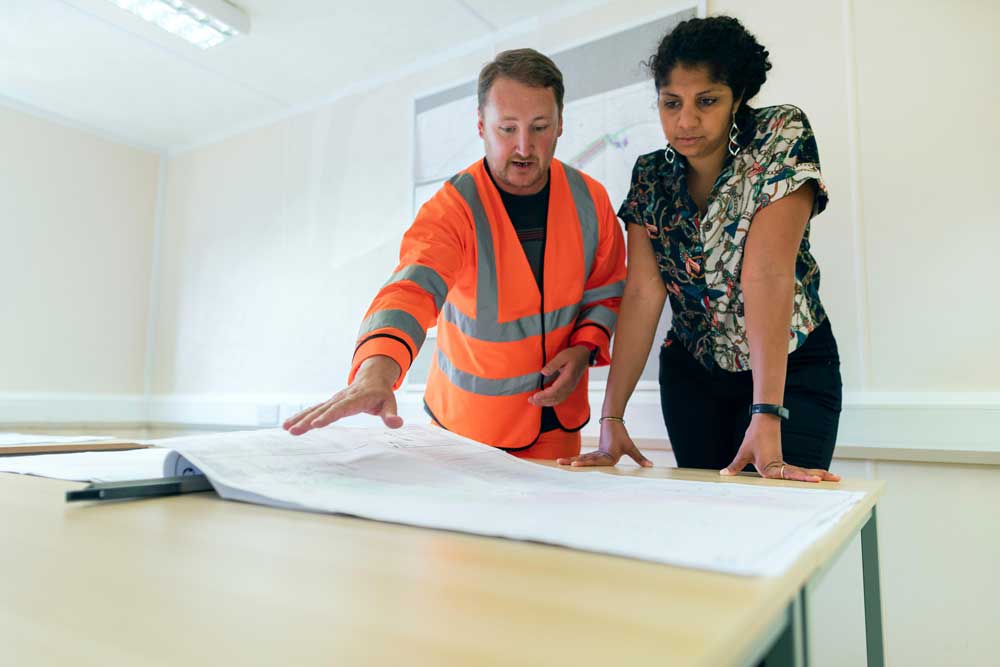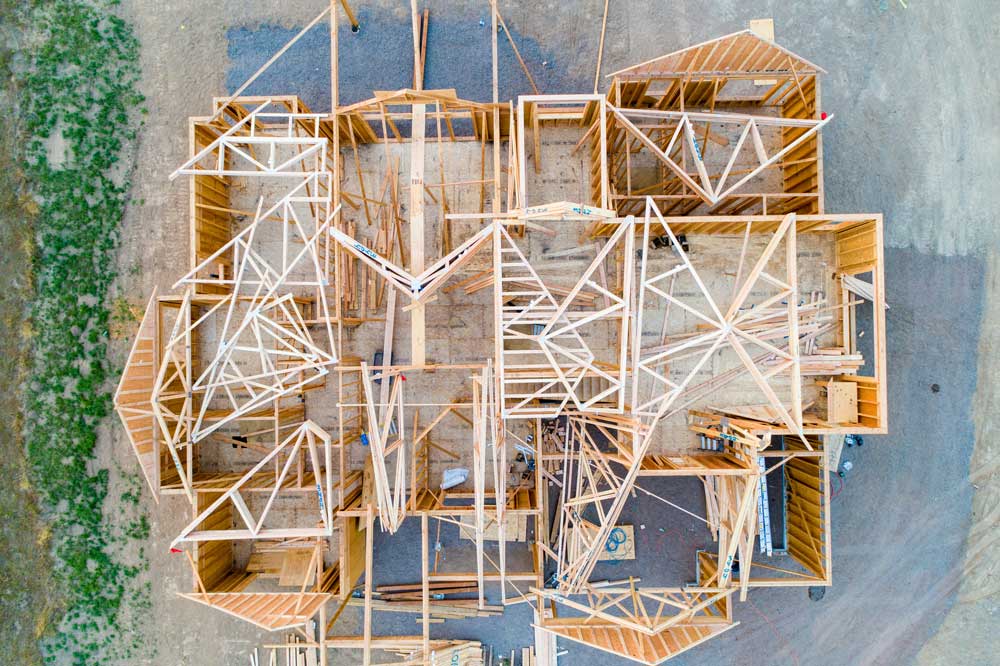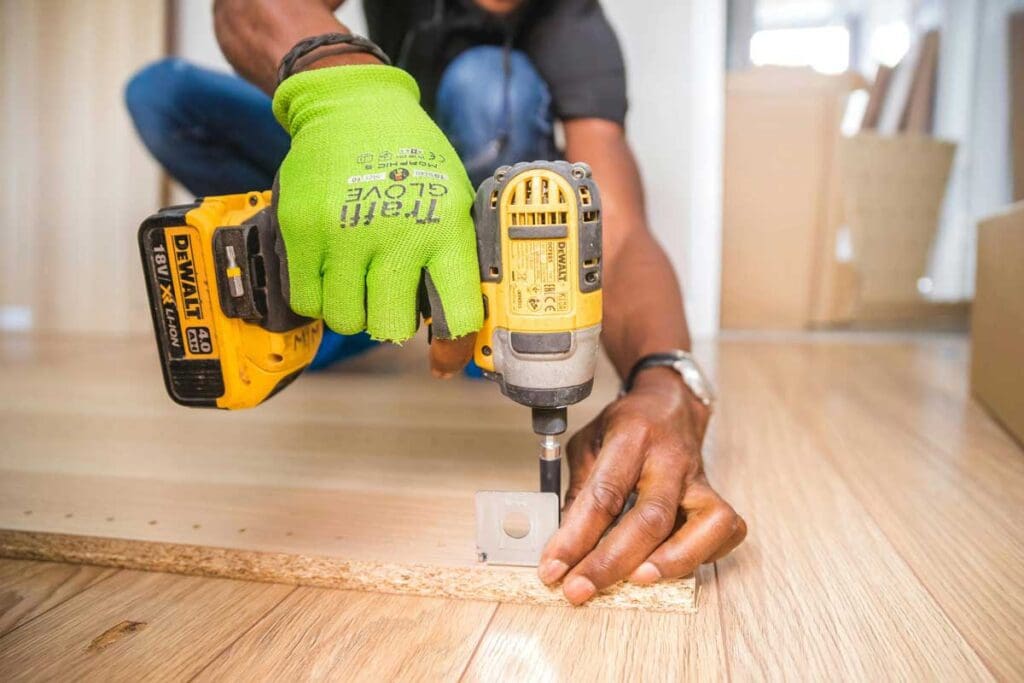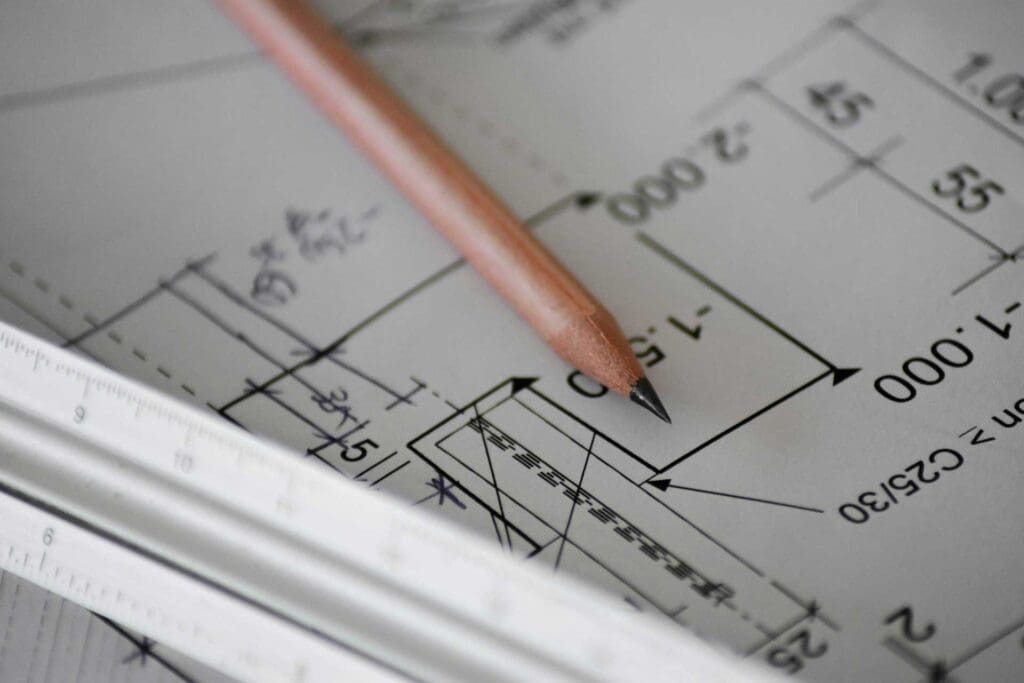
The Importance of Choosing the Right General Contractor
When to Hire a General Contractor
Embarking on a construction project, whether it’s building your dream home, renovating an existing structure, or taking on a commercial project, often entails complexities that require professional oversight. This is where a general contractor can save the day!
The decision to hire a General Contractor, also known as a “GC”, should be based on several factors:
- Scope of the Project: Large-scale projects with multiple facets such as plumbing, electrical, framing, and finishing work are best managed by a General Contractor.
- Time Commitment: If you cannot commit to managing the day-to-day operations of a construction project, a GC can save you time and stress.
- Experience and Expertise: Complex projects often require specific knowledge and experience that only a seasoned General Contractor can provide.
The Role of a General Contractor:
A GC coordinates all aspects of a project, from sourcing materials and hiring subcontractors to ensuring compliance with building codes. They are the central point of communication, keeping the project on track and within budget. In renovations, a General Contractor can offer creative solutions to achieve your desired outcome while navigating the challenges of altering existing structures. For new builds, a GC’s expertise in ground-up construction ensures that each phase of the project aligns with your vision and meets all regulatory standards.
Online Contractor Matching Services
In the digital age, finding a General Contractor can be as simple as clicking a button. Online contractor matching services offer a convenient way to connect with local, qualified contractors. These platforms often provide user reviews, ratings, and project galleries to help you make an informed decision. However, it’s crucial to vet these recommendations further, as online profiles may not always provide the full picture.
At Divine Homes & Construction, we look at each project as an opportunity to elevate your lifestyle. We pride ourselves on transforming spaces into areas of comfort, functionality, and beauty. Our commitment as a general contractor extends beyond the physical structure to enriching the lives of our clients. We strive to create environments that resonate with your aspirations, ensuring every space we touch adds value and joy to your daily living.
Maximizing Online Platforms:
Understand the algorithm behind these platforms and look beyond star ratings. Take some time to read through reviews thoroughly, noting both positive and negative feedback. Verify the authenticity of the reviews, and consider reaching out to reviewers for more in-depth insights.
Recommendations from Neighbors and Friends
Word-of-mouth remains one of the most reliable ways to find a trustworthy General Contractor. Ask neighbors, friends, or family members who have recently undertaken similar projects for their recommendations. Personal experiences can offer valuable insights into the reliability, work ethic, and quality of the GC’s work.
Defining Your Project Needs
Before you start looking for a General Contractor, it’s essential to have a clear understanding of your project.
Consider the following:
- Project Scope: Detail what you want to achieve. This can range from a simple remodel to a complete new home construction build.
- Style and Aesthetics: Have a vision of the desired aesthetic and functionality.
- Budget: Determine how much you are willing to invest in the project.
- Timeline: Set realistic expectations about how long the project should take.
Importance of Detailed Planning
Thorough planning lays the groundwork for a successful project. It involves setting clear goals, envisioning the end result, and preparing for contingencies. This clarity aids in communicating your vision to the General Contractor and sets the stage for a well-executed project.

Researching Potential General Contractors
How to Find a General Contractor Near You
Finding a GC in your area can involve several approaches:
- Online Directories: Websites like Angie’s List or HomeAdvisor offer listings of local contractors.
- Local Building Associations: These can provide lists of member contractors who adhere to certain ethical standards. Explore locally according to your needs!
- Social Media and Forums: Platforms like Facebook or Nextdoor can be valuable resources for community recommendations.
Extending Your Search:
Attend local home shows and consult industry publications. Engage with professionals at these events and gather firsthand accounts of their work and client interactions. Checking with local building authorities can also provide insights into reputable General Contractors in your area.

How to Hire a General Contractor
Selecting the right general contractor for your project is a big decision that involves more than just picking a name from a list. Here’s how you can approach this process with strategy and insight:
- Interview Potential Candidates: Set up meetings to discuss your project and to get a feel for how you’d work together. This is your opportunity to share your vision and gauge their understanding and enthusiasm! Pay attention to how they communicate and whether they offer innovative solutions or ideas that resonate with your project goals.
- Vet Their Track Record–Check References and Past Work: Always ask for references, and make sure you take the time to follow up on them. This step is crucial in painting a picture of what your future project might look like under their guidance.
- Discuss Availability and Timeline Compatibility: Ensure that their schedule aligns with your project timeline. Discuss potential start dates, project milestones, and completion goals. It’s essential that your General Contractor’s availability can synchronize seamlessly with your timeline to ensure a smooth, uninterrupted construction process!
General Contractor Qualifications
A qualified General Contractor should have:
- Appropriate Licensing: Verify that they hold all necessary local and state licenses.
- Insurance and Bonding: Ensure they have liability insurance and are bonded to protect you against potential damages or unfinished work.
- Relevant Experience: Look for a General Contractor with experience in projects similar to yours.
Understanding Licensing Requirements:
Different licenses indicate the scope of work a General Contractor is authorized to undertake. Verify that their license covers the specific type of work your project involves. Additionally, check if the GC has any specialty certifications that could be beneficial for your project.
The Importance of Insurance:
A General Contractor’s insurance protects you from liability in case of accidents or damage during the project. Ensure they have comprehensive coverage, including worker’s compensation and property damage insurance.

Services a General Contractor Offers
When you bring a GC on board, you’re enlisting a multi-talented leader for your construction project. Here’s a snapshot of the essential services they offer:
- Project Management – Guiding Your Project to Success: Think of your General Contractor as the pilot of your construction journey. They oversee every aspect of the project, steering it from the initial concept to the final touches. Their expertise ensures that your project progresses smoothly, stays on track, and aligns with your vision!
- Coordination of Subcontractors – Orchestrating Expertise: A General Contractor is your point person for managing a diverse team of skilled subcontractors. From electricians to plumbers, they ensure the right professionals are on the job at the right time, guaranteeing quality work across all fronts.
- Obtaining Permits – Navigating the Red Tape: Dealing with permits and regulations can be daunting. Your General Contractor navigates this bureaucratic maze, making sure that your project complies with all local laws and codes (and saving you from the headache!)
- Supply Procurement – Sourcing the Best for Your Build: From bricks to beams, your general contractor sources the materials needed for your project. They leverage their networks to find the best supplies, balance quality and cost, and manage deliveries to keep your project timeline on track.
Unique Services Offered by Some General Contractors:
Beyond these core services, some General Contractors offer specialized capabilities:
- Design-Build Services: Combining design and construction expertise, these General Contractors provide a streamlined process from architectural planning to building.
- Green Building Expertise: Focusing on sustainability, they incorporate eco-friendly practices and materials, ensuring your project is both beautiful and environmentally conscious.
Evaluating Credentials and Experience
When selecting a General Contractor, assessing their credentials and experience is important. Look for:
- Years of Experience: A General Contractor’s time in the business is often a reliable indicator of their reliability and expertise. More years can mean a deeper understanding of the industry and an ability to handle a variety of projects.
- Specializations: Look for General Contractors who specialize in the type of project you’re undertaking. Whether it’s residential homes, commercial buildings, or specific architectural styles, a specialized GC brings targeted expertise.
- Case Studies and Testimonials: Review case studies to understand how the General Contractors tackled past projects. Pay attention to how they solved challenges and met their clients’ goals. Testimonials offer a glimpse into the satisfaction levels of previous clients and the quality of the contractor-client relationship.
Remember, finding the right general contractor is about striking a balance between expertise, reliability, and a mutual understanding of your project’s vision and goals. With careful research and thoughtful consideration, you can confidently embark on your construction project, knowing you have the right professional guiding it to completion.
At Divine Homes & Construction, we offer a range of specialized general contracting services that cater to the unique needs of homeowners. Our expertise lies in enhancing and expanding your living spaces with the same precision, quality, and personalized touch that define all our projects.
Reviewing Portfolios and Past Projects
Continuing your evaluation, delve into the General Contractor’s portfolio of past projects. This step complements your assessment of their credentials and experience. A well-documented portfolio provides a visual testimony of their craftsmanship and a narrative of their expertise.
While evaluating these portfolios, pay attention to the diversity and complexity of the projects. Have they handled projects similar to yours? How have they navigated challenges in past projects? The portfolio also offers a chance to assess their style and see if it aligns with your vision.
Remember, each project in their portfolio is a story of a relationship between the contractor and a homeowner; understanding these stories can provide you with a comprehensive view of what to expect.
New Home Construction Projects
Reviewing a general contractor’s involvement in new home construction projects gives you a sense of their ability to manage a project from the ground up. It’s an opportunity to assess their skill in coordinating various stages of construction and their knack for problem-solving. How they handle the complexities of new home construction projects, from laying the foundations to the final touches, speaks volumes about their technical expertise and project management skills.
Turnkey Projects
Turnkey projects are unique because they require the contractor to deliver a project that is ready for immediate use. Examining a General Contractor’s experience in such projects can be enlightening. It shows their capability to handle multiple aspects of construction, including design, procurement, and execution, with a focus on delivering a finished product. This often requires a higher level of organization and attention to detail.
Project Takeovers
Navigating project takeovers requires a special kind of expertise. Not every contractor can effectively step into and manage an already ongoing project.
When evaluating a General Contractor for this role, consider their proven ability to adapt and be flexible within an existing framework. The skill lies in being able to assess what’s been done, identify what needs to change and execute those changes efficiently. A General Contractor who excels in project takeovers demonstrates flexibility, a keen eye for detail, and a strong capability for problem-solving.
Site Improvements
A General Contractor’s portfolio of site improvements can illustrate their proficiency in enhancing existing structures or sites. This requires a different set of skills, as it often involves working within constraints and making improvements without extensive changes to the existing framework.
It requires creativity, resourcefulness, and an understanding of how to maximize potential without starting from scratch. A contractor skilled in site improvements can bring a fresh perspective and innovative solutions to your project.
Remodels and Renovations
Examining a General Contractor’s past remodels and renovations can provide insights into their creativity and problem-solving skills. These projects often require a delicate balance between the old and the new, requiring a deep understanding of both traditional and modern construction techniques. It’s also indicative of their ability to listen to and interpret a client’s needs and preferences.

Seeking Recommendations and References
Beyond the visual appeal of a portfolio, you can find out a lot about a general contractor’s abilities from the satisfaction of their past clients.
Seeking recommendations and engaging in direct conversations with previous clients provides invaluable insights. Discuss the contractor’s communication style, adherence to project timelines and budgets, and overall craftsmanship.
Don’t forget to ask about their post-project engagement, too, as this can be just as telling as their performance during the project! This step in your selection process is about looking beyond the portfolio to understand the real-world experience of working with the contractor.
Review Previous Work
A thorough review of a General Contractor’s previous work can provide a realistic expectation of their craftsmanship and commitment to quality. This might involve site visits to completed projects or examining detailed case studies. These reviews can help you gauge the consistency of their work quality across different projects.
Ask for References
Direct conversations with a general contractor’s former clients can give you a clear picture of their working relationships and professional conduct. When you have the opportunity to speak with these references, it’s your chance to delve deeper into the experiences they had with the contractor.
Focus on questions that uncover the nuances of working with the contractor, like how they responded to feedback, managed day-to-day operations, and their approach to problem-solving. Inquire about the contractor’s ability to maintain a collaborative and respectful working environment and how they navigated any challenges or changes during the project. These conversations can shed light on the contractor’s approach to building a positive and productive working relationship with their clients.
Approaching Conversations with A General Contractor’s Past Clients
When speaking with a General Contractor’s past clients, approach the conversation with both openness and specific objectives:
- Set a Respectful Tone: Start by expressing gratitude for their time and willingness to share their experience.
- Be Specific in Your Queries: Instead of general questions, ask about specific aspects of the project and General Contractor, such as adherence to timelines, communication style, and handling of any challenges.
- Inquire About the General Contractor’s Responsiveness: Understand how the GC dealt with issues, whether they were proactive in communication, and how they handled any unforeseen complications.
- Discuss Post-Project Engagement: Ask about the General Contractor’s follow-up practices after project completion. Were they available to address any post-completion issues or concerns?
Specific Questions to Ask Past Clients
To gain valuable insights, consider asking questions like:
- “How closely did the final result align with your initial vision and project scope?”
- “Can you describe how the General Contractor communicated and interacted with you throughout the project?”
- “Were there any unexpected challenges during the project, and how were they handled?”
- “Did the project stay on budget, and how were any financial adjustments managed?”
- “How did the General Contractor manage the subcontractors and onsite workers?”
- “In hindsight, was there anything you wish had been done differently?”
- “Would you hire this General Contractor again for a future project?”
Gathering this information will give you a more well-rounded picture of the General Contractor’s capabilities, work ethic, and ability to meet clients’ expectations.
It’s important to remember that every project is unique, and a past client’s experience, while insightful, may not be identical to your own. However, these conversations can significantly inform your decision-making process and help you choose a contractor who is a good fit for your specific project needs.

Communication and Compatibility
Effective communication with your general contractor is key to a successful project. It’s about fostering a collaborative relationship where both parties are actively engaged. In your initial consultations, try to assess if they truly grasp your vision and whether they’re able to offer valuable insights. It’s crucial that they show genuine interest in your project, ask relevant questions, and provide thoughtful responses.
A contractor’s ability to maintain open lines of communication, transparently discuss challenges, and respond promptly to your needs can greatly influence the project’s outcome. Ensuring compatibility in communication styles contributes to a smoother project flow and a relationship built on trust and respect.
Building a Partnership with Your General Contractor
Try to look at your relationship with your contractor as a partnership. In this partnership, open dialogue and mutual respect drive progress and results. Both you and the contractor contribute, making decisions together that lead to the project’s ultimate success!
Questions to Ask a General Contractor
Before you meet with potential General Contractors, prepare a list of questions. Make sure to ask about their approach to project management, how they plan to communicate updates, and how they handle unforeseen complications. Discuss their team structure and the role each member will play in your project. Understanding their approach will help you gauge if their working style aligns with your expectations.
Here’s a list of example questions to help guide your discussion:
Project Management Approach:
- “Can you walk me through your process for managing a project similar to mine?”
- “How do you ensure that a project stays on schedule and within budget?”
Communication and Updates:
- “What is your preferred method of communication with clients during a project?”
- “How frequently can I expect updates, and what form will they take (meetings, emails, reports)?”
Handling Unforeseen Complications:
- “Can you provide an example of a challenge you faced in a previous project and how you resolved it?”
- “How do you manage changes or unexpected issues that arise during a project?”
Team Structure and Roles:
- “Who will be part of the team working on my project, and what are their roles?”
- “How do you ensure quality control and accountability within your team?”
Experience and Past Projects:
- “What projects have you completed that are similar to mine?”
- “Can you provide references from previous clients who had similar projects?”
Budget and Cost Management:
- “How do you provide cost estimates, and what level of detail can I expect in your quotes?”
- “How are additional costs handled if the project scope changes?”
Permits and Regulations Compliance:
- “How do you handle the permitting process, and are you familiar with the local building codes relevant to my project?”
- “Have you ever faced any compliance issues, and how were they resolved?”
Materials and Suppliers:
- “How do you select materials and suppliers for a project?”
- “Can I have input on the selection of materials and finishes?”
Warranty and Post-Completion Support:
- “What kind of warranty do you offer on your work?”
- “How do you handle any issues that might arise after the project is completed?”
Personal Approach and Values:
- “What sets your approach apart from other contractors?”
- “How do your core values reflect in your work and client relationships?”
These questions are designed to elicit informative responses that will help you assess the contractor’s suitability for your project. Remember, the goal is to establish a clear understanding of their working style, expertise, and how they plan to bring your vision to life.

Budget and Cost Transparency
Understanding the financial aspects of a construction project is crucial. A trustworthy general contractor will provide a detailed estimate and will explain the various cost factors involved. This transparency is vital for setting realistic expectations and avoiding surprises.
Let’s break down the typical cost components:
- Labor Costs: This includes the wages of skilled and unskilled laborers working on your project. Labor costs can vary significantly depending on the region, the complexity of the work, and the expertise required.
- Materials: The cost of materials can be a major part of the overall budget. This includes everything from basic construction materials like lumber, concrete, and steel to finishing materials like paint, tiles, and fixtures. Prices can fluctuate based on quality, availability, and market conditions.
- Equipment and Machinery: Some projects require specialized equipment for excavation, demolition, or lifting heavy materials. The cost of renting or operating this equipment is factored into the overall budget.
- Permits and Fees: Most construction projects require various permits from local authorities. These could include building permits, electrical permits, plumbing permits, etc., along with their associated fees.
- Design and Engineering Fees: If your project requires professional design or engineering services, these fees will be included. This could include architects, interior designers, structural engineers, etc.
- Subcontractor Costs: For specialized work like electrical installations, plumbing, or HVAC systems, subcontractors may be hired. Their costs are part of the overall budget.
- Project Management Fees: The general contractor’s fees for managing and overseeing the entire project are usually a percentage of the total cost or a fixed management fee.
- Contingency Fund: A contingency fund (typically 10-20% of the total budget) is set aside for unforeseen expenses or changes in project scope. It acts as a buffer to cover unexpected costs.
- Insurance and Safety Costs: Insurance costs to protect the project, workers, and your property during construction are factored into the budget. Safety measures and equipment also contribute to the cost.
- Waste Removal and Cleanup: Post-construction cleanup and the disposal of construction waste are often overlooked but necessary budget inclusions.
- Overhead Costs: This includes indirect costs like office expenses, travel, communication, and utilities associated with running the contractor’s business.
Discuss the payment schedule, understand the terms, and clarify how changes in the project scope will affect the overall costs. A detailed contract outlining all these aspects plays a crucial role in maintaining financial clarity.
While it’s tempting to choose a General Contractor that offers a significantly lower estimate, it’s important to weigh the cost against the quality of work and the contractor’s reliability. Remember, in construction, cutting corners can lead to long-term costs that far outweigh the initial savings.
Is a General Contractor Worth It?
A common dilemma is whether hiring a general contractor is worth the investment. In this context, consider the complexity of your project and the value a GC brings in terms of expertise, time management, and stress reduction. Often, the efficiency and quality assurance provided by a seasoned contractor justify the cost.
How Much Money Should You Give a General Contractor Up Front?
Discussing upfront payments is crucial. While some upfront payment is standard, it’s important to understand what it covers and how it fits into the overall payment schedule. This can vary significantly based on the project scope and the contractor’s policies.

Contract and Legal Considerations
Should I Sign a Contract with My General Contractor?
Absolutely. A contract is fundamental to any construction project. It should clearly outline the scope of work, payment schedule, timeline, and any other specific terms agreed upon. The contract serves as a legal document that protects both you and the contractor. It should detail the responsibilities of each party, provide a clear description of the work to be done, and set forth the procedures for handling any changes or unforeseen circumstances. Ensure that you fully understand and agree with all aspects of the contract before signing.
Understanding Contract Terms
Familiarize yourself with common contract clauses like dispute resolution, change order procedures, and lien waivers. Understanding these terms helps prevent misunderstandings and legal issues.

Work Ethics and Timeline
Identifying a General Contractor’s work ethic and understanding their approach to project timelines are essential. Look for ethical practices, professionalism, and commitment to timelines. This influences the success of your project and your overall satisfaction.
How Do I Know if a General Contractor is a Scammer?
Identifying potential red flags can save you from falling prey to unscrupulous contractors.
Look out for:
- Demand for Large Upfront Payments: Be cautious of contractors asking for substantial money upfront.
- Lack of Proper Licensing or Insurance: Verify their professional credentials and insurance coverage.
- Vague or Incomplete Contracts: A reliable contractor provides detailed, clear contracts.
- Refusal to Provide References: Trustworthy contractors are willing to share references from past clients.
- Unclear History of Work: A contractor should have a transparent and verifiable work history.
Trustworthy contractors typically have:
- Valid Credentials: They possess the necessary licenses and insurance.
- Transparent Communication: They are open and clear in their dealings with clients.
- Willingness to Share References: They are confident in the quality of their work and happy to provide references.
Signs of a Good vs. Bad General Contractor
Recognizing the signs of a competent and reliable GC is key. Indicators of a good General Contractor include:
- Portfolio of Successfully Completed Projects: Demonstrates their capability and reliability.
- Positive References: Indicates satisfaction from previous clients.
- Professional Demeanor: Shows respect for clients and professionalism in their work.
Conversely, signs of a potentially bad contractor include:
- Consistent Tardiness: Indicates a lack of professionalism and respect for client time.
- Dismissive of Concerns: Shows a lack of interest in client needs and inputs.
- Unclear Communication: Suggests a lack of organization or transparency.
- Inconsistent Billing Practices: Raises questions about their honesty and reliability.

Decision-Making and Moving Forward
Choosing the Right General Contractor
Selecting the right general contractor involves balancing various factors like experience, budget, communication style, and previous client satisfaction. Your decision should be based on a thorough evaluation of their qualifications, a clear understanding of your own project needs, and a comfortable rapport with the contractor.
What Can I Do if There’s an Issue After the Project is Complete?
If issues arise post-completion, refer to the contract for guidance on handling disputes or warranty claims. It’s important to communicate your concerns to the General Contractor directly and give them the opportunity to address the issue. If the problem persists, you might consider mediation or legal action, depending on the severity and nature of the issue.

In conclusion, finding the right general contractor for your project is a process that requires diligence, research, and careful consideration.
By taking the time to thoroughly vet potential General Contractors, clearly define your project goals, and establish a solid contractual agreement, you can ensure a more successful and satisfying construction experience. Remember, the right contractor will bring not only expertise to your project but also peace of mind, as you’ll know that your vision is in capable hands!
Take the first step towards transforming your home into a masterpiece of comfort, functionality, and beauty.
Partner with Divine Homes & Construction today for unparalleled general contracting services that blend quality craftsmanship with innovative solutions.






